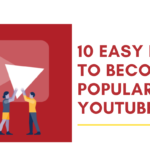Job Roles and Duties of Video Game Designer
“You not only love to play games, but also wonder what goes behind making them.”
If this holds true for you, keep reading. But to take maximum value from this article, it is important to begin by understanding the difference between video game designing and video game development. We often confuse between the two. Game designers conceptualize, design, and test games. This includes storyboarding, defining all possible outcomes, game levels, 2D and 3D designs, and testing bugs in the code. Developers’ role is to translate the design into code using game programming languages and imparting skin and flesh to the characters and environment. Designers and developers often work together closely during the lifecycle of the game, but their primary roles differ.
Keep reading the article to understand the job roles and responsibilities, skills and qualifications, and career opportunities required to enter the game designing field.
Job Roles and Duties
Video game designers visualize, create and document all the dimensions that an end-user can encounter while playing the game.
- Use mockups and flowcharts to plan and design the game levels, missions, and all possible outcomes for end users.
- Use line, form and color theory to design visual aesthetics and simulations.
- Overall storyboarding, and role-plays and body mechanics of each character.
- Use 2D and 3D animation to design characters, props, weapons, and vehicles.
- Periodically review the development and ensure that it is in line with the design. Collaborate with sound engineers for audio and video.
- Create and maintain game design documentation with mechanics, design guidelines, and mission outcomes.
- Collaborate with the QA team to test the broken code and match the development outcome with the design.
- Design marketing material for the game such as fliers, posters, logos, and social media marketing material.
- As a lead game designer, you may need to co-ordinate and lead different teams and ensure that the overall production process runs as per the plan.
Skills and Education Required to be a Video Game Designer
Technical knowledge is not the only requirement to be a video game designer. You need certain interpersonal skills and personality traits to be successful in the industry. Some of them are –
Storytelling – Games are evolving, and studios are now finding it important to weave games around a storyline. As a game designer, you may need to work closely with a specialist narrative writer on dialogues, cut-scenes, backstory, and quests.
Creativity – Video game designers need to be extremely creative to visualize all possible outcomes and put them down in the flowchart and during storyboarding. This usually requires designing many prototypes and is done incrementally. You also need to work with 2D and 3D designing software, create hand sketches as well as textures, and make environments.
Ability to work on a schedule – Game design and development is like any other software project. All the tasks are time-bound and need to be done accordingly so that the final game can be made live as per the schedule and within the budget.
Problem-solving skills – Game design may need upgrades and modifications even after the development phase starts. The designers need to have quick problem-solving ability to update the design and send it back to the development team.
Attention to detail – Video games are extremely complex. If you can spot and fix mistakes early on, you can save time and money. This includes documentation, visual, sound, and gameplay content. You may also need to find and document bugs in the game during the development stage.
Strong communication skills – As a game designer, you will often work with managers and other teams such as developers, testers, sound, and visual artists. Lack of communication skills may often lead to confusion and a waste of time. You need good communication skills to convey your idea through meetings, emails, or phone calls.
Apart from the interpersonal skills, most studios look for your ability to demonstrate good quality work and technical skills. All these are easy to learn in a structured degree program with professors, peers, and industry professionals.
Start your career with an associate degree in video game design for an entry-level position in a studio. Here you master 2D and 3D animation concepts, industry-standard software tools, design games, engage in the development process, and eventually build your portfolio.
After a few years of industry experience, you can upgrade your skills with a bachelor’s degree program in video game design. This will train you in advanced modeling, texturing, game and engine design, analytics, emerging technologies in gaming such as Virtual Reality (VR) and Augmented Reality (AR), advanced animation, scripting, and rigging.
Game Designer Career Opportunities and Job Profiles
Game designing is complex. In a small studio, you may find yourself doing multiple jobs, but larger studios have very specialized roles for each team member. An associate degree can help you with following career possibilities –
- Game designer.
- Character designer.
- Animator.
Bachelor’s degree in video game design can up-skill you for the following opportunities –
- Character artist.
- Video game designer.
- Video game programmer.
Bureau of Labor Statistics (BLS) mentions following career paths for a video game designer –
- Designers –
- Lead designer
- Content designer
- Game mechanic designer
- Level designer
- Text and dialogue writer
- Programmers –
- Lead programmer
- AI programmer
- Graphics programmer
- Network programmer
- Physics programmer
- Tools programmer
- UI programmer
- Artists –
- Art director
- Lead artist
- Concept artist
- Modeler
- Animator
- Other major occupations –
- Audio workers
- Executives
- Producers
- QA testers
Once you have sufficient industry experience, you can also consider opening your game design and development studio.
Conclusion
Whether you begin your career with a smaller studio that gives you cross-platform learning opportunities, or a larger studio with a more specialized role, don’t forget to build long term connections with faculty and peers. These will get your foot in the door and keep you moving ahead in the career. Well-respected recommendation and a great portfolio can help you a lot!
Apart from the day job, you can also take part in video game competitions, seminars, networking events, and online discussion boards and forums.
Author Bio
Carrie Weisman is an experienced journalist and content creator. She has worked across different business verticals, and specializes in creating well-researched, in-depth articles for Fortune 5000 companies.











![The Time Is Now For Apps and Small Businesses [Infographic]](https://technofaq.org/wp-content/uploads/2017/07/apps-small-business-150x150.jpg)




